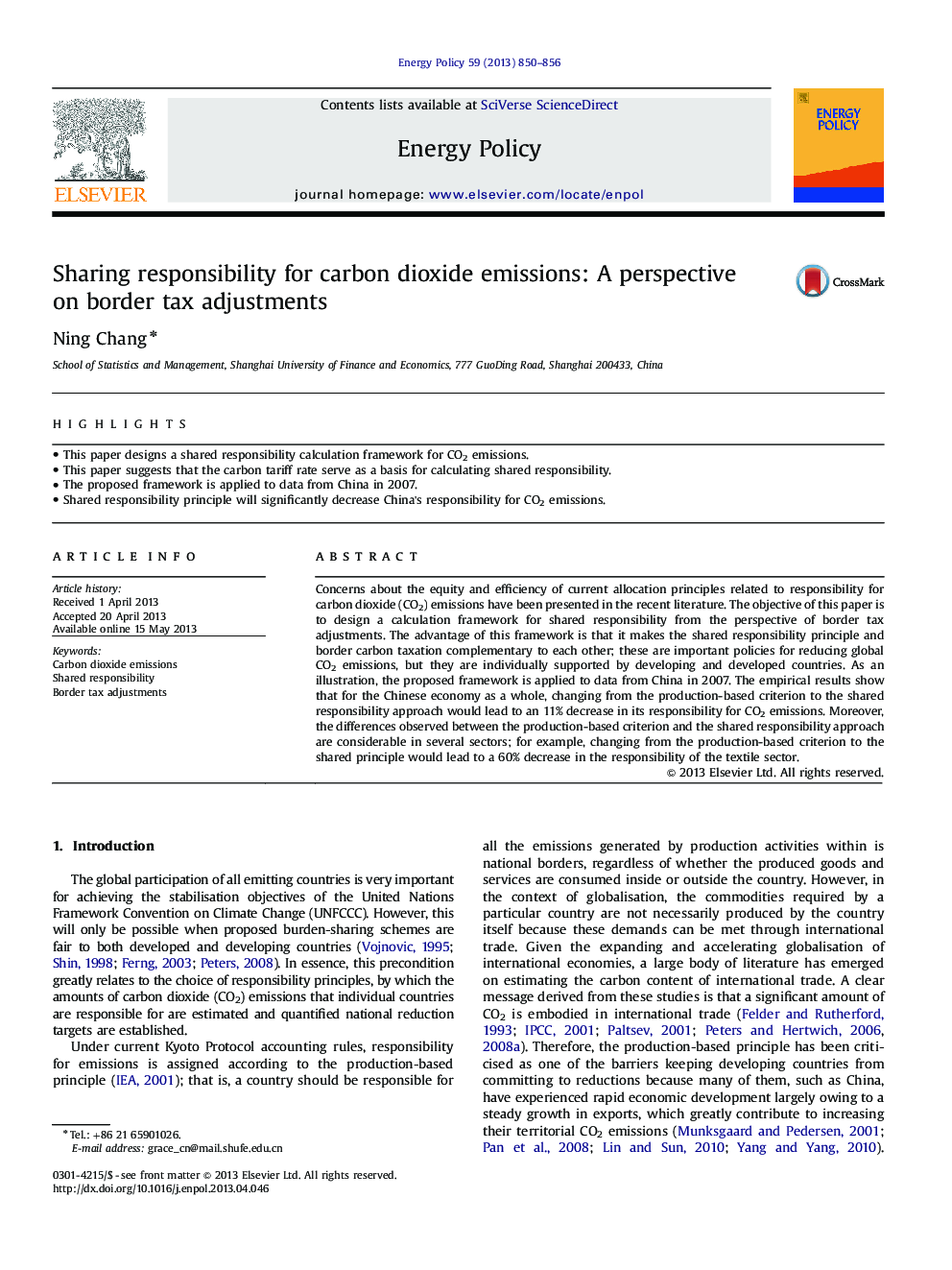| Article ID | Journal | Published Year | Pages | File Type |
|---|---|---|---|---|
| 7404846 | Energy Policy | 2013 | 7 Pages |
Abstract
Concerns about the equity and efficiency of current allocation principles related to responsibility for carbon dioxide (CO2) emissions have been presented in the recent literature. The objective of this paper is to design a calculation framework for shared responsibility from the perspective of border tax adjustments. The advantage of this framework is that it makes the shared responsibility principle and border carbon taxation complementary to each other; these are important policies for reducing global CO2 emissions, but they are individually supported by developing and developed countries. As an illustration, the proposed framework is applied to data from China in 2007. The empirical results show that for the Chinese economy as a whole, changing from the production-based criterion to the shared responsibility approach would lead to an 11% decrease in its responsibility for CO2 emissions. Moreover, the differences observed between the production-based criterion and the shared responsibility approach are considerable in several sectors; for example, changing from the production-based criterion to the shared principle would lead to a 60% decrease in the responsibility of the textile sector.
Related Topics
Physical Sciences and Engineering
Energy
Energy Engineering and Power Technology
Authors
Ning Chang,
